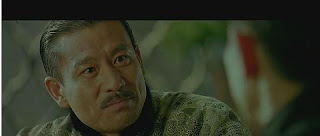The film was a hybrid of an action drama film, narrated a warlord era in China. It was a great visual experience for audiences, which was directed by Benny Chan (陳木勝), starring by Andy Lau (劉德華), Nicholas Tse (謝霆鋒), Jackie Chan (成龍), Fan BingBing (范冰冰) and Wu Jing (吳京).
The narration of this film was about between Chinese people V.S. Western power, and Evilness V.S. Confucianism/Buddhism, which covered a great extent with dominant assumption between Hong Kong and China.
Especially now China is one of the most important film markets of Hong Kong films, we need to pay close attention on what ideologies behinds this film and how commercialized films has slowly shift to shared cultural categories between China and Hong Kong.
For instance, Shaolin is a film about a ruthless warlord, Hao Jie (劉德華) understood his own past deed during his stay in Shaolin’s Temple. But even when he was a mean, horrible person, yet, he was still against the idea of doing trade with foreigner (western power requested Hao to unearth Chinese relics, in exchange for advanced weapon for warlord’s wars)
China was overpowered by foreign militaries from 19th century until WWII, it was forced to sign unequal treaties and grant foreigners special privileges of extraterritoriality.
It was a shared historical experience between Hong Kong and China. Hong Kong’s people understood and remembered this history; meanwhile, Chinese people can be more related to this memory, as it was the root of nationalism, a collective identity in China, which glued whole nation together.
And the hidden Nationalism ideologies could please a large heterogeneous audience in China; especially China Film Market is the largest consumption of Hong Kong films.
Furthermore, Hong Kong was once a de-nationalized colony as it was ruled by Britain till 1997. Hong Kong has been caught up in the road which previous dealing with colonialism, post-colonialism, is now re-negotiating with the new discourses of nationalism and patriotism.
The film was co- distributed by China Film Group (CFG). CFG was established in 1949. In 1999, CFG was given a responsibility from Chinese Communist Party (sole government-authorized film distributing company) from manager all overseas distribution to all Chinese-foreign co productions. The differences between Hong Kong and mainland China have been less distinctive.
For instance, half of the main actors were from China, for instance, Wu Jing (吳京), Fan BingBing(范冰冰) andShi Xiaohong (師小紅). All their characters were strong, positive in Chinese ideologies. All of them fully demonstrated the Confucianism and Buddhism ideologies, from obedience, loving of a wife Fan BingBing, a giving attitude of Buddhism of Wu Jing ( he tried to save all poor civilians that were captured by Cao) and the Confucianism of sworn bother of Hou Jie's Shi Xiaohong (師小紅). ( he saved Hou Jie’s life even after Hao Jie wanted to murder him/捨身成仁).
Furthermore, after the return of HKSAR to China, there are more extensive linkages between Hong Kong and China. By selling a film that was based on shared cultural categories can indeed gain wide profit.Confucianism is an ideology, which all Chinese people ( Hong Kong and Chinese) understand since they were young. For instance, After the death of Hao’s daughter, the agony had made Hou became disillusioned and depressed, but During his stay in Shaolin, Hou understood Saolin’s principle through study and practiced martial art in order to redeem himself.
Cao Man (謝霆鋒) was an evil warlord that betrayed Hao Jie (劉德華), who killed his daughter. Yet, Hou still wanted to guide Cao back to correct path by using his learned wisdom from Shaolin Temple (以德報怨) .
He defeated Cao in a fight and eventually sacrificed himself to save Cao from being crushed by a falling beam (returning the karma of Song's sacrifice to save Hou during Song's assassination) and fell into the Buddha statue's palm and dies peacefully, leaving Cao feeling guilty.
This film was able to please two film markets with its shared cultural categories (Confucianism and Buddhism) without offending established powers by adding hidden nationalism in it.
By Rebecca, Chen Yi Chen (10465704)





A very well written film review with a central focus, unrcovering the traditional cultural values (e.g., Confucianism, Buddhist Ideology) conveyed in the film. Throughout the film , nearly all characters demonstrated a high level of loyalty to one’s nation, which definitely override all personal qualities. Some important features, such as the binary oppositions used in narrating the story, are also clearly identified and discussed.
ReplyDeleteYou have made a point that all Chinese people (including Hong Kong people) are familiar with Confucianism, but does it mean that all of us would identify with these characters (embodied with many traditional Chinese virtues) without doubt? For instance, did you really undergo such an identification process when you watched the film? Is there any discrepancy in decoding due to the cultural difference (despite the bigger “shared cultural categories” based on national background) between Hong Kong and China?